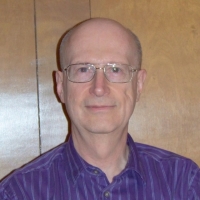Mennonite Healthcare Fellowship
Blog article

 I’ve been thinking about the word “recovery” these days. Recovery is a gracious process, but not without some challenge, struggle, and even pain of its own. I am very glad to be in recovery mode from the unexpected crisis brought on by a heart attack last December. There was considerable uncertainty as to whether I would recover at all, and then, if I did, to what extent would I recover. By God’s grace, I have recovered sufficiently to resume my work for Mennonite Healthcare Fellowship. I am tremendously grateful!
I’ve been thinking about the word “recovery” these days. Recovery is a gracious process, but not without some challenge, struggle, and even pain of its own. I am very glad to be in recovery mode from the unexpected crisis brought on by a heart attack last December. There was considerable uncertainty as to whether I would recover at all, and then, if I did, to what extent would I recover. By God’s grace, I have recovered sufficiently to resume my work for Mennonite Healthcare Fellowship. I am tremendously grateful!
It has been quite a process with struggles and setbacks along the way. Some of the medicines designed to save my life caused painful and even life-threatening complications in other areas. Rehabilitation was hard and created its own pain, and then it was difficult to re-start the rehab process following additional time in the hospital. To this day, I continue an exercise routine that I probably wouldn’t have done otherwise. Yet, I am alive and functioning well, the recipient of a difficult and wondrous grace to renew my life’s work.
I’ve also thought about other ways that the word recovery is used in our culture today.
- Recovery can happen from illnesses great and small, physical and mental, emotional and spiritual.
- For many years, I worked as a pastor among persons with alcohol and drug addictions who spoke often of being “in recovery.”
- In recent weeks, and now for even months and years to come, we in the U.S. will be talking about the “recovery” efforts of people affected by monster hurricanes. Meanwhile, folks in Asia are recovering from the extreme monsoon rains which have brought over 1,000 deaths.
None of this is easy. Like my personal recovery, recovering in all of these human crises requires hard work and additional pain and often brings unforeseen consequences along the way. Yet, the struggle to recover is God’s gracious gift, the hope for a renewal of life that overcomes the forces of death. When God gives us the opportunity, we do well to accept the grace given and persevere despite the setbacks that may come. And we rejoice in the signs of renewal along the way!
“Recovery and Renewal” seems like a fitting theme for Mennonite Healthcare Fellowship as well in these days. I tremendously grateful for all of the folks who picked up on my work when I wasn’t able to do so. None of what I say next diminishes my profound gratitude for the grace with which you handled the disruption and struggle and concerns that my illness caused you.
And yet, my personal crisis has had some unintended consequences for the organizations I work for, including MHF. During the initial recovery from a crisis, we operate in survival mode. Only the essential work is done so that life might be sustained right now! So the kind of thinking and work that I would likely have done, such as fundraising and development, slipped down the priority ladder as the Board (and then joined by Tim Johnson as Interim Executive Director) worked at the programming that was more urgent. One tangible result has been a significant budget deficit for the fiscal year just ended. So all of us who value the mission of MHF will need to work hard at that aspect of recovery in the year to come.
At the same time, my absence has also revealed signs of hope and renewal. Indeed, in God’s wisdom, some of this may not have happened (or at least not quite in the same way) had I been functioning as usual. I saw these signs of renewal most vividly by being privileged to attend Annual Gathering 2017 at Laurelville as a participant instead of a director. It was tremendously gratifying to see the program come together under vigorous young leadership and to see the results in attracting new young professionals and their families. Hearing the reports of two of last year’s grant recipients and then seeing five persons in various stages of application and service for a Student Elective Term this coming year has been a tremendously positive boost! I just read another application and was amazed, as always, at the quality of talent, commitment, and leadership potential that is coming our way!
So “Recovery and Renewal” is happening for MHF as well! The process may bring with it some struggle and sacrifice yet. This may mean different experiences for different generations. MHF’s younger members can continue to participate in the programming opportunities and tell their friends! At the same time, MHF needs the wisdom, the counsel, the encouragement, and the support of those who are more seasoned, including retirees. We are in this mission together and we need each other, no matter at what stage of life we find ourselves.
Six years ago, visionary leaders of Mennonite Medical Association and Mennonite Nurses Association launched this new multi-disciplinary organization open to all Anabaptist healthcare professionals who wanted to integrate their Christian faith and their professional life. While it hasn’t always gone as planned, God is still offering us the gracious gift of recovery from the setbacks and renewal of the vision. I’m very grateful for my own recovery which allows me to meet the challenges with you in this year ahead to carry on that work! Thank you for both your past and ongoing prayers!
About the author
 Paul D. Leichty, M.Div. is Executive Director Emeritus, having served as the first Executive Director of Mennonite Healthcare Fellowship (MHF) from Sept. 2011 through May 2020. Paul has served as a pastor, church musician, computer support person, disabilities advocate, and administrator/organizer of a number of church-related ministries. Paul also served as Executive Director of Congregational Accessibility Network which was transformed in 2022-23 to Disability Ministry Network. He is a member of Agape Fellowship of the Mennonite Church in Williamsport, Pennsylvania where he lives with his wife, Twila Charles Leichty.
Paul D. Leichty, M.Div. is Executive Director Emeritus, having served as the first Executive Director of Mennonite Healthcare Fellowship (MHF) from Sept. 2011 through May 2020. Paul has served as a pastor, church musician, computer support person, disabilities advocate, and administrator/organizer of a number of church-related ministries. Paul also served as Executive Director of Congregational Accessibility Network which was transformed in 2022-23 to Disability Ministry Network. He is a member of Agape Fellowship of the Mennonite Church in Williamsport, Pennsylvania where he lives with his wife, Twila Charles Leichty.
